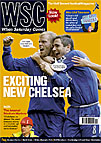 Just two points seperated first from fourth at the end of the 1977-78 season, with Keith Burkinshaw's Tottenham returning to the top-flight at the first time of asking, albeit on goal difference. Philip Cornwall reports
Just two points seperated first from fourth at the end of the 1977-78 season, with Keith Burkinshaw's Tottenham returning to the top-flight at the first time of asking, albeit on goal difference. Philip Cornwall reports
The long-term significance
It’s not the winning or the losing, it’s the coming second or third. Bolton, managed by Ian Greaves, took the title, but it would be 20-odd years before Wanderers, led by one of Greaves’ defenders, would become top-flight regulars. Yet the two teams they pipped for the title, Southampton and Tottenham, haven’t been relegated since achieving this promotion. Keith Burkinshaw, the manager of Spurs who had taken them down the previous May to end 27 seasons in the top flight, was given the opportunity to put that right, something unlikely to happen today.
Story of the season
From Roy Greaves’ winner at Burnley on opening day onwards, Bolton looked capable of achieving the promotion that had eluded them by a point the previous May. Burkinshaw’s first season after taking over Terry Neill’s sub-standard side had ended in even greater disappointment, but Spurs’ first stay in Division Two since 1950 always looked like being a brief one.
The surprise success were Southampton. Lawrie McMenemy’s team had flirted with the relegation zone in late 1976, suffering a terrible hangover from their FA Cup victory over Manchester United the previous May. Now they turned 1977’s eventual mid-table safety into a march on Division One.
Late stumbles from these three clubs did give Brighton – the only other contenders – some hope. Sam Allardyce and his Bolton team-mates secured promotion with a win at Blackburn, then took the title with a goalless draw at home to Fulham. The same score at The Dell – where Tottenham were the visitors – would take up both teams and deny Alan Mullery’s Seagulls. The Saints hit a post, but only Alan Ball seemed interested in scoring and, strangely, the Saints seemed reluctant to pass to their ex-Arsenal team-mate. A 0-0 draw and a double celebration ensued, though Rothmans (above) robbed Spurs of ten away goals to suggest wrongly that Brighton should have gone up on goal difference.
At the bottom, Millwall won only six of their first 36 games, but then won their last six, starting with a 2-0 win over Blackpool. The Seasiders – like Bolton a win away from promotion in 1977 – slumped from ninth to 19th in a month, then were relegated to Division Three for the first time when Orient won their final match, ten days after Blackpool’s fixtures finished.
For the record books
Spurs’ 9-0 victory over Bristol Rovers remains the club’s record league win. Blackpool went down despite not being in the bottom three at all until after the end of their season and having the division’s top scorer, 22-goal Bob Hatton. Seven teams finished one point clear of relegation.
Same place today
No one has spent the past 26 years at this level, though Crystal Palace, Saints and Spurs, have never slipped lower.
Moved furthest away
16,189 saw Hull start the season at home to Sheffield United. 3,645 saw their last match, at home to Bristol Rovers. This was Mansfield’s last season in this tier.
Went on to greater things
Glenn Hoddle – made his England debut 18 months after winning promotion with Spurs. Currently learning English as a forin langwage on Sky Sports.
Peter Reid – a key part of Bolton's Division Two title-winning midfield, later playing the same role in Everton's title-winning sides. Currently straining not to turn the air blue on Match of the Day.
Garth Crooks – the Stoke striker turned 20 in March on his way to scoring 18 goals in 42 appearances. Currently halfway through asking a pointless question.
Ricky Hill – an all-but ever-present at Luton, the midfielder was 19 in March.
Disappearing from view
Gordon Taylor – the Blackburn midfielder left for Bury and Division Three, before heading to the PFA.
Ralph Coates – the famous comb-over only got three run-outs this season for Spurs and was on its way to Orient in October 1978.
Bobby Kerr – the 1973 FA Cup-winning captain had his last full season at Roker Park.
Peter Storey – the former Arsenal Double winner, later convicted on pornography charges, played his last Fulham game in September and retired two months later due to a persistent groin problem.
From WSC 214 December 2004. What was happening this month
I don't recall anybody being surprised by Southampton's promotion – Lawrie Mac had rebuilt the side the previous season (hence the mid-table finish) and it now contained Alan Ball, Chris Nicholl, Phil Boyer, Ted MacDougall and several younger players who subsequently established themselves in the 1st division.